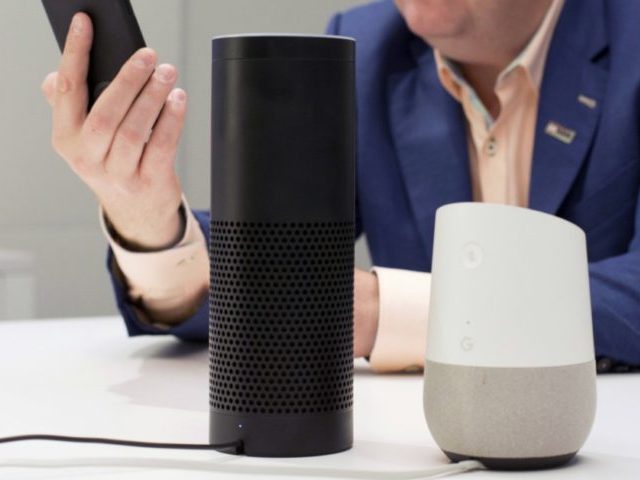Mozilla: Smart Home Devices Still Bad for Privacy and Security
The editor of the Mozilla Foundation’s Internet Health Report recently published a blog post on the website of the UK consumer association Which? that questions how privacy-focused the smart devices being pushed by the Masters of the Universe are.In a blog post to Which.co.uk titled”Are You Being Spied on by Your Smart Home Devices?” Solana Larsen, the editor of the Mozilla Foundation’s Internet Health Report, discusses whether popular smart home devices such as speakers are respecting users’ privacy.
Larsen notes that although many people may have heard of smart devices such as the Amazon Echo or Google Home, there are a number of smart home devices from smart scales to cat litter trays. Larsen warns that just as the number of types of smart devices grows, security and privacy measures often don’t improve. Larsen writes:
Now that more and more companies collect personal data about you, including audio and video of your family, and sensitive biometric and health information, like your heart rate and sleeping habits, it’s worrying that more are not upfront about the privacy and security of their products.Larsen notes that the most popular smart devices have generally improved their security, but many leave much room for improvement. Larsen writes:
To address this, we at Mozilla publish a ‘*Privacy Not Included’, buyer’s guide every year to assess whether popular smart devices meet our five Minimum Security Standards. This year, we examine 76 popular products, and encourage you to judge for yourself what you think.
For example:Larsen then lists the steps that users could take in order to influence manufacturers to improve the security of these devices:
- New types of smart devices like doorbells, which have been criticised for lack of encryption, security vulnerabilities, and privacy issues.
- Fitness trackers designed for kids as young as 4 years old, raise questions about what we are teaching our children about how much digital surveillance in their lives is normal.
- A whole range of pet-focused products entering homes are disturbingly weak on both privacy and security.
For example:The Mozilla Foundation has also compiled a shopper’s guide of sorts. The guide lists a number of different products with a smiley face above them, as users scroll down the page the smiley changes from smiling to concerned to frightened. This indicates the level of privacy offered by the devices in each category.
Read the full Internet Health Report article “How smart homes could be wiser.”
- Start rating products on their privacy and security. Wherever we rate the price and performance of products, let’s start rating them on privacy and security too.
- Push for better privacy laws and regulations. In Europe, and beyond, we need to urge politicians to pass robust data privacy regulations — and enforce them!
Try it out at the Mozilla Foundation’s website here.
We need to be aware, as consumers, just how our personal data is being used, often without our knowledge, to bring profit to various companies, and even to collect data they don't need, which could potentially be used for all sorts of nefarious purposes.
For example, how many of you use your cell phone to take pictures? I'd guess most do. How many share those pictures online, on social media sites? If you do, do you know that your phone could be placing quite specific location information on those photos? Unless you turn off location data, anyone could download those pictures, and tell exactly where they were taken. And, yes, I mean pretty exactly. One study that was done showed that someone could determine not only in which house on street a picture was taken, but in which room. photo of your baby's nursery could tell a hacker where in your house your baby sleeps, making it easier to target that child. Pictures your kids post and share with friends could reveal their location to online predators.
How about that smart refrigerator? Wow, it can tell you when you need to shop, and maybe even do that for you! What happens, though, when doctors or insurance companies have data on what foods you purchase, and decide to use that information against you? What if insurance companies were allowed to refuse coverage, if you didn't eat exactly as some "professional" decided you should eat? Think that couldn't happen? Think again. There is already a push in many quarters, including from the UN, for people to stop eating meat. Nowadays, your refrigerator could turn you over to the food police.
Smart TV? Do you want or need a device that knows everything you watch? How about a DVR that can count how many people are in the room? Or a gaming system that can track people in the room? A doorbell camera that can analyze you voice and share that data? And don't even get me started on those "speaker" or "personal assistants" or whatever you want to call those evil spy devices!
Be smarter than your tech, folks.

No comments:
Post a Comment